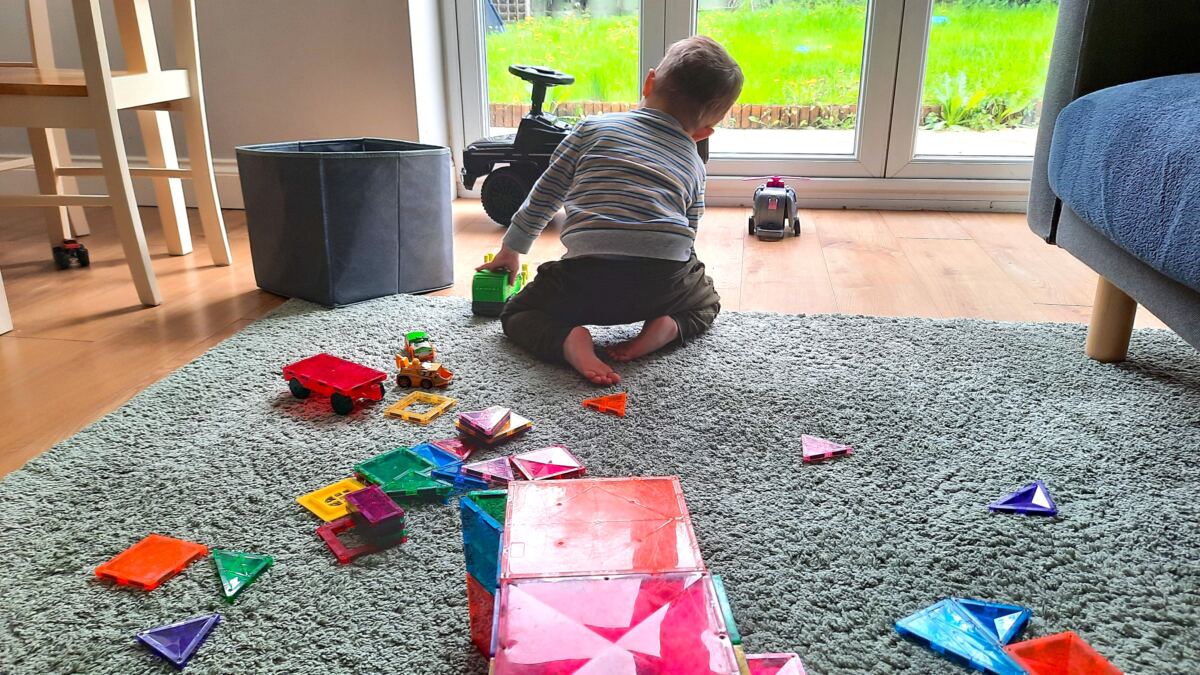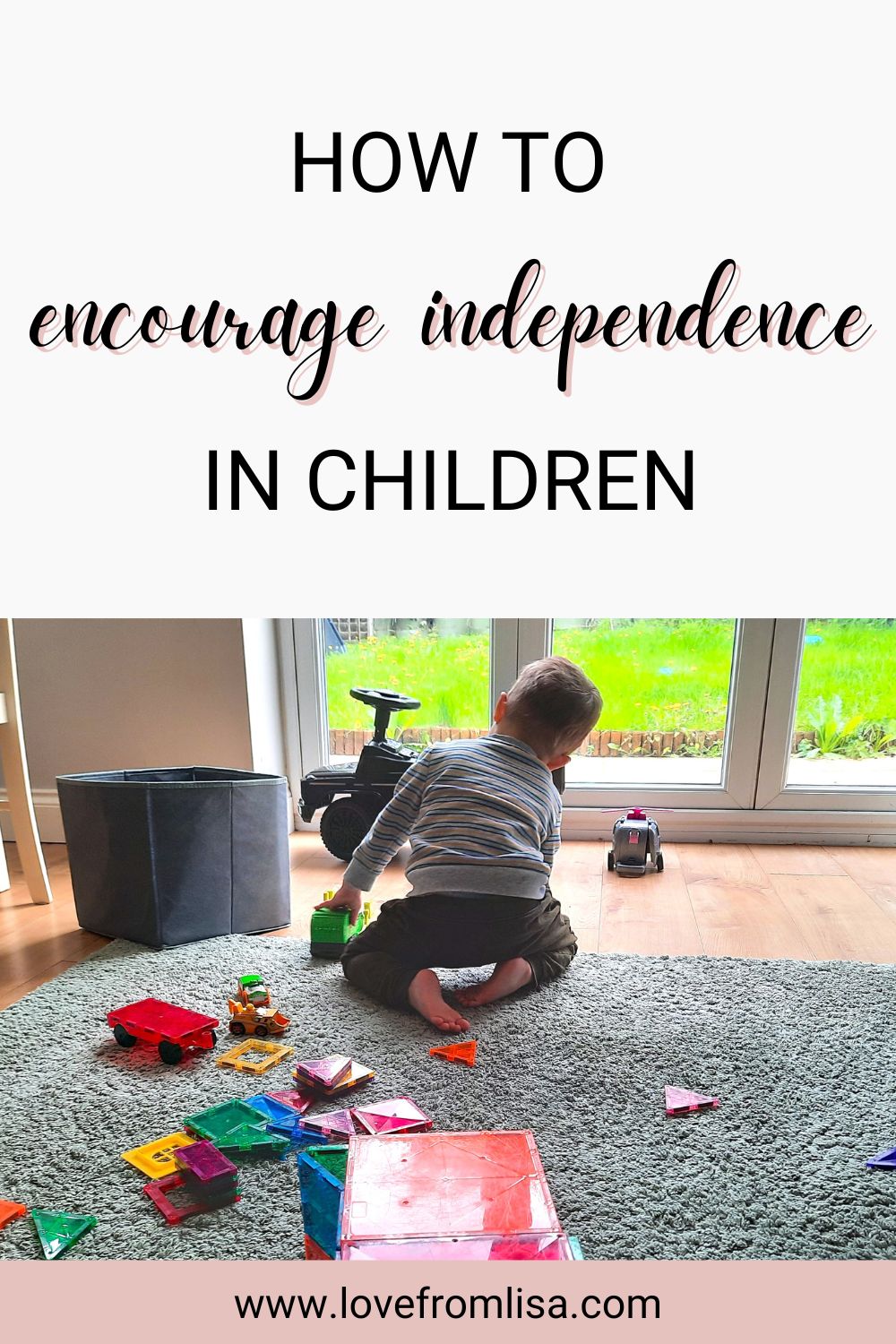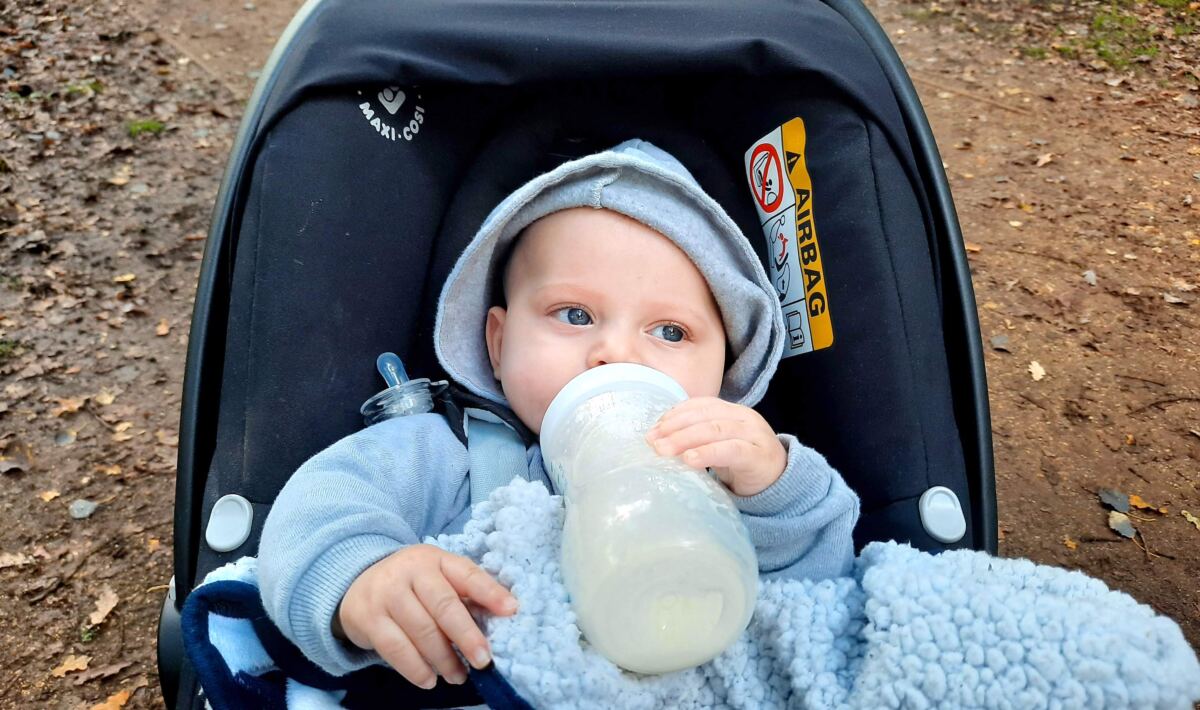How to encourage independence in children
Last Updated on April 1, 2024

Encouraging independence in children can feel difficult, because it can take a long time for our children to learn the skills they need to become more independent, and it can be hard for us to let go of the things we enjoy doing, or that we want to do to make life easier for our children.
However, encouraging independence in children is something that we need to do as mums, because as well as being an important part of children’s development, it’s something they need to do in order to function as an adult.
If you’d like to start encouraging your child to be more independent, here are some activities you can start doing with them to achieve this, as well as some reasons why encouraging independence in children is important.
What does encouraging independence in children mean?
Encouraging your child to be independent means teaching your child how to do more and more things without your help.
As children get older they want to and are able to do more and more things, which they originally needed a lot of help with.
Becoming more independent also provides a child with the skills they need to contribute to family life, and that they need in adulthood.
What age should you encourage independence in your child?
Children as young as 2 can start to do things to become more independent, and at this age they want to help and become more involved in family life, so it’s a great time to start.
Babycentre UK say that between the ages of 2-3 toddlers continue to grow more independent, so introducing them to activities that build on the level of independence they have, and that they want is great timing.
Why is encouraging independence in children important?
Encouraging independence in children is important because it allows them to contribute to the things that need to be done to run a house and a family, which lessens the loads on us mums.
Becoming more independent also provides children with a sense of self-confidence, because they can start to do things by themselves, and a sense of pride when learning new skills.
Most importantly, by becoming more independent they’re learning the things they need to know how to do once they reach adulthood.
Activities to encourage independence in children
Here are some activities that you can start teaching your children to do on their own, so they can start becoming independent.
Getting dressed
Children can start to dress themselves from the age of 2.5, and will be able to do more and more as they get older, and as their motor skills develop.
There are ways to make dressing easier for this age group, which includes getting their clothes out of the wardrobe or drawers for them, reorganising your child’s wardrobe by placing their clothes on shelves that they can access, and by buying clothes that don’t have buttons or zips.
Children at this age can also be encouraged to put their coat on, as well as take their shoes or trousers off.
Older children can start to dress and undress themselves from start to finish, and choose what to wear.
Household chores
Some household chores and the ages that children can start to do them to encourage their independence include:
Toddlers and preschoolers
- Clean up toys
- Brush up crumbs with a brush and dustpan
- Wipe spills with cloths or wipes that they can get themselves in drawers they can access
Primary school aged children
- Make their bed
- Clean their rooms
- Set and clear the table
- Load and unload the dishwasher and washing machine
- Brush their teeth
Here are some more chore ideas for 5 year olds if you’d like some additional household chore ideas for this age group.
Feeding themselves
Feeding themselves is something that toddlers can start, and children from pre school age can start to get their own snacks, or make themselves toast or a sandwich.
Hygiene activities
There are many hygiene related activities that children from the age of 2.5 can start doing on their own, including washing and drying their hands before and after meals, after going to the toilet, or after touching animals.
They can also put dirty clothes in a laundry hamper, and take their dirty plates to the kitchen after they’ve finished eating.
Solo play dates and parties
Solo play dates and solo parties are a way to encourage independence in children of primary school age.
This is one of the ways I’ve started to develop independence in my primary school aged son, by allowing him to have play dates with his friend who lives opposite us, without me being there.
There’s always an adult in the house with him and his friend, but I’m not there, which means he has to be confident enough to ask another parent for anything he needs, or work out any issues he has with his friend without my help.
Another way to encourage independence in children is to drop your primary school aged child at a party and pick them up when it’s finished, as long as it’s okay with the party child’s parents.
Taking responsibility for homework
Another way to encourage independence in children at primary school age is to get them to become more responsible with their homework, by getting them to do it on their own until they need your help.
For older children you could remind them when their homework is due, and tell them what happens if they don’t do it, leaving it to them to do the homework on their own before the deadline, and then face any consequences if they don’t do it.
Letting them play independently
This is something I’ve done with my toddler from about the age of 2, which is to let him play independently, and only step in if he asks me.
Doing this allows your child to learn how to entertain themselves, and find solutions to any problems they have.
Encouraging independent thought
Apart from physical activities, encouraging independent thought in your child by getting them to form their own opinions, researching solutions to questions they have, or talking to them about things they’ve learnt at school allows them to see things from different viewpoints, and develop an independent way of thinking.
When you start to encourage independence in your child, they will make mistakes, they may take many attempts to get something right, and they may push back and not want to do something.
However, being patient, guiding them, and giving them positive feedback and encouragement will allow them to learn the activity eventually, making life easier for everyone, and teaching them the skills they need for their future.
What have you taught your children to encourage their independence?








Such a helpful post for any parent or carers to help with children’s development. These are posts I will like to read when I get to become a mum in the hopefully near future.
Thank you for sharing.
Lauren. – bournemouthgirl
Thank you so much for reading and I hope it’s helpful to parents and future parents as well.